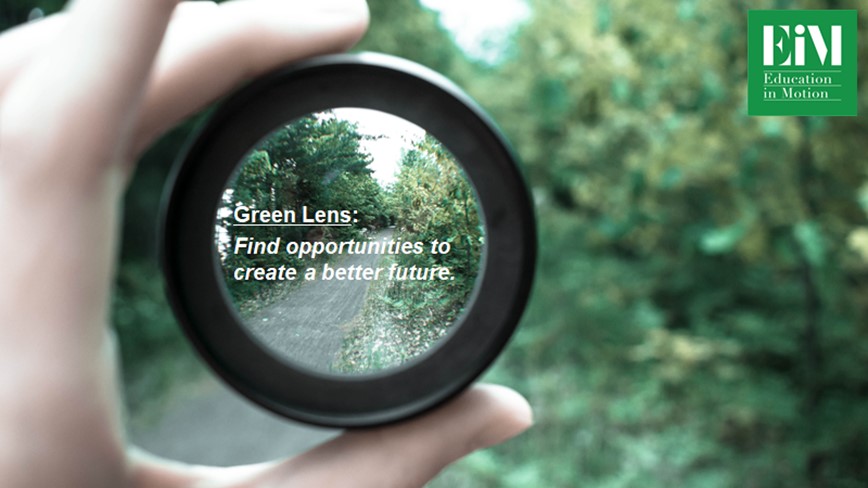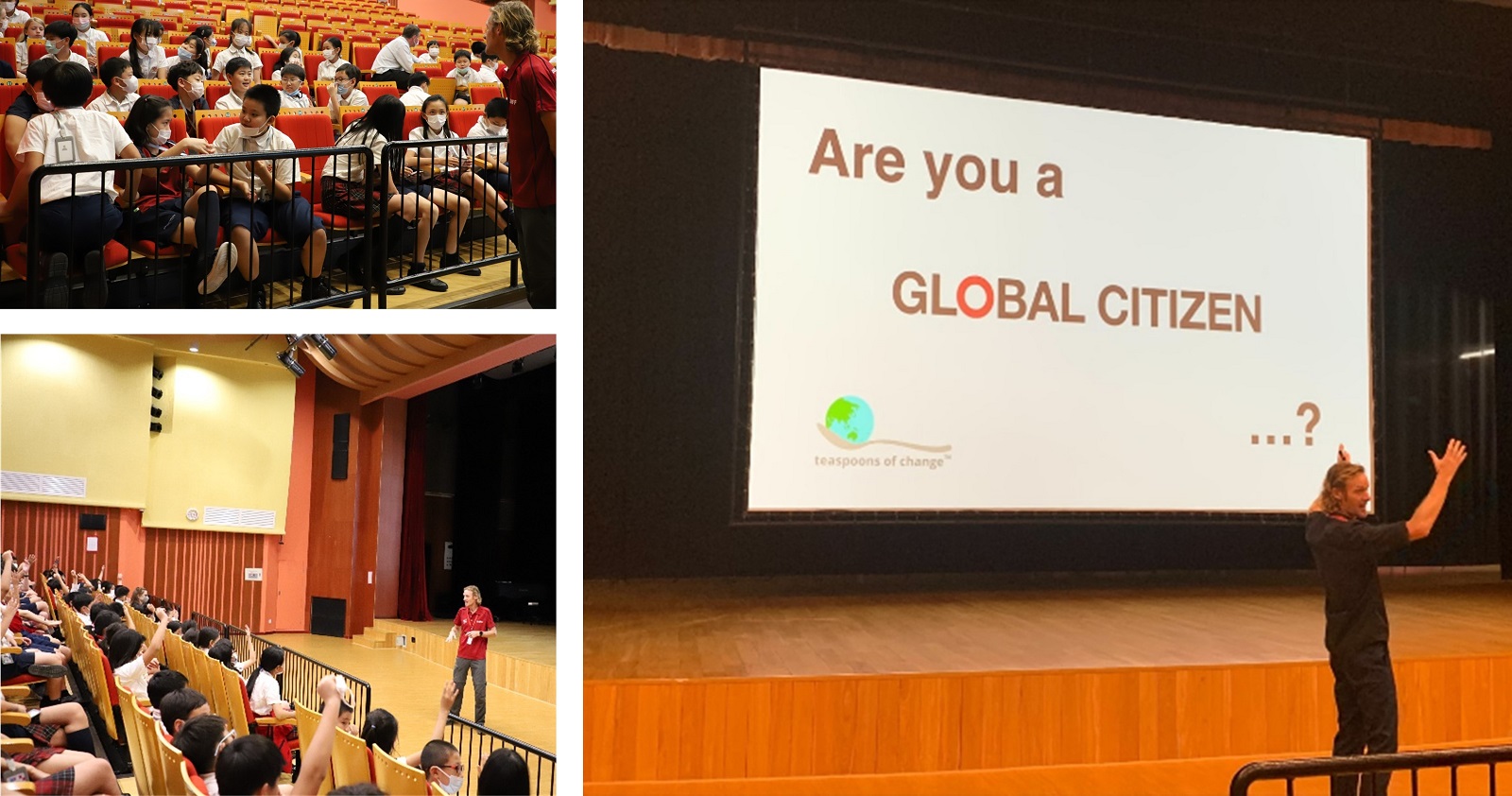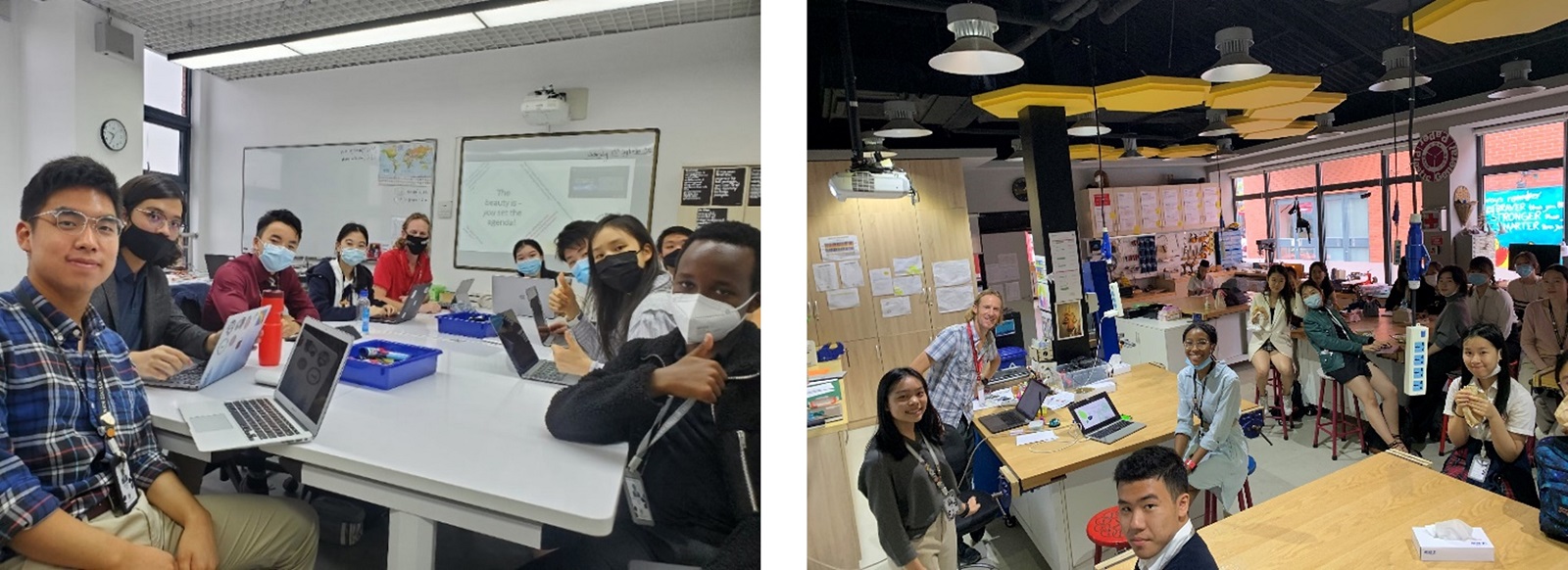Developing sustainability and global literacy through education
Dulwich College Beijing (DCB) has been very fortunate to recently host d’Arcy Lunn, Group Head of Sustainability and Global Citizenship at EiM. Between his numerous working sessions with both staff and students across all three schools, he managed to spare some time to meet us and share his views on Sustainability and Global Citizenship and our role in education: how we can guide, learn from and work together with young generations along these paths.
1. How do you define sustainability?
For most people, sustainability only encompasses environment, but sustainability goes beyond plastics and Earth Day.
For me, sustainability is a mindset, an attitude and a way of being. It’s about translating our core values into actions and understanding our actions impact the world. It is more effective to develop our personal definition of what is means to be sustainable. This is why it is so important to continuously grow our sustainability literacy and competency in order to better assess and understand how our decisions can turn into good actions and positive impacts for the world.

Sustainability has slowly changed the way we live and work over the past few years. This transformation will continue to grow further, and sustainability is everywhere. New ways of doing business are emerging and will continue to grow, leading the world to transition towards a “sustainable revolution” the same way the industrial revolution took place in the late eighteenth and early nineteenth centuries.
2. What does Global Citizenship mean for students?
Moving forward, Global Citizenship is the umbrella concept that encompasses sustainability, wellbeing, equality, diversity, inclusion, etc. We need to demystify Global Citizenship to make it accessible and personal to everyone, from any age. When I meet students, I usually ask them “are you a global citizen?” to trigger discussions about what global citizenship means to them, and in situations that are relevant to them.

Being a global citizen, for me, is knowing we are connected to other people and the planet. Becoming a global citizen starts with baby steps, or small contributions that I like to refer to as Teaspoons of Change (https://teaspoonsofchange.org).
The idea is that even the smallest things can have a positive impact, and that multiplying these little things by the number of global citizens will result in significant change.
At our individual level, what really matters is how each of us integrate global citizenship in our daily life, how we stimulate global citizenship consciousness around us, initiate conversations or make conscious efforts to look at things from a more sustainable perspective. In short, how we contribute to developing our community’s global and sustainability literacy to become more active and effective global citizens.
The most efficient way to address global citizenship-related topics, even some more challenging ones, is to link them to a context that is relevant to people in their daily life, so they can genuinely relate to the topic. For example, with Senior School students, we can address many topics through university entrance discussions, businesses, or future jobs. After all, most people would relate to matters impacting their wellbeing, education, or business opportunities.
More specifically, talking about carbon mapping, raising awareness about carbon footprint and linking it to ESG reporting (Environment, Social & Governance) through business-specific vocabulary and concepts is very efficient to prepare students for the future. It is also a way for them to identify the greatest source of emissions based on quantitative data.
On a more social justice perspective, I like to address diversity as a celebration of differences, starting from basic differences such as size, voice, hair colour, food or colour preferences, and progressively broadening the spectrum of discussion to ensure we feel nourished and richer for having more diverse perspectives in our lives.
3. The role of education in developing sustainability and global literacy
Since my last visit to DCB in 2019, I have noted a real shift over the years, there is a bigger drive for sustainability and global citizenship. This translates in more in-depth questions, with the community moving away from the basics of removing plastic straws, towards a higher level of information, aiming at more sophisticated goals through finer and deeper actions impacting sustainability, global citizenship and service.
This really shows a wider spectrum of sustainability literacy, as the community is weaving sustainability into their lives and our community. One practical example is that teachers are mapping the United Nations Sustainable Development Goals into the curriculum to make it a daily life sub-topic through simple examples and not necessarily as a specific topic or subject.
As global citizens, we should continue to listen to our students’ voice and take on their perspectives to evolve together and positively in the future. They are, ultimately, the main stakeholders of tomorrow and as such, should be encouraged to raise their voice and be listened to in this world that we are handing over to them.

As a provider of international education, we should adapt our narrative to our community’s specific context, reposition it to address the perspectives that are relevant both on a personal and professional level. Providing a more targeted and specific narrative will certainly drive stronger and deeper engagement. Influencing the community will follow a gradual trajectory, starting from smaller goals and evolving into bigger actions as sustainability and global literacy improves and positive impacts become more tangible and effective.
From providing examples of daily actions to leveraging the influence of recognised role-models among the community, the most important aim is to demonstrate that combining individual small actions produces a significant positive outcome – just like dealing with this pandemic or in the case of polio eradication that has only seen 2 cases so far this year in the entire world down from 350,000 cases in 1988.
Our goal is to link sustainability with education by focusing on developing literacy and competency in sustainability as an enhancement to our student’s learning journey. Our students will make a significant contribution to the world both at a personal and professional levels: they are creating the future of China as their current Teaspoons of Change come to fruition both today, and on a longer term.








